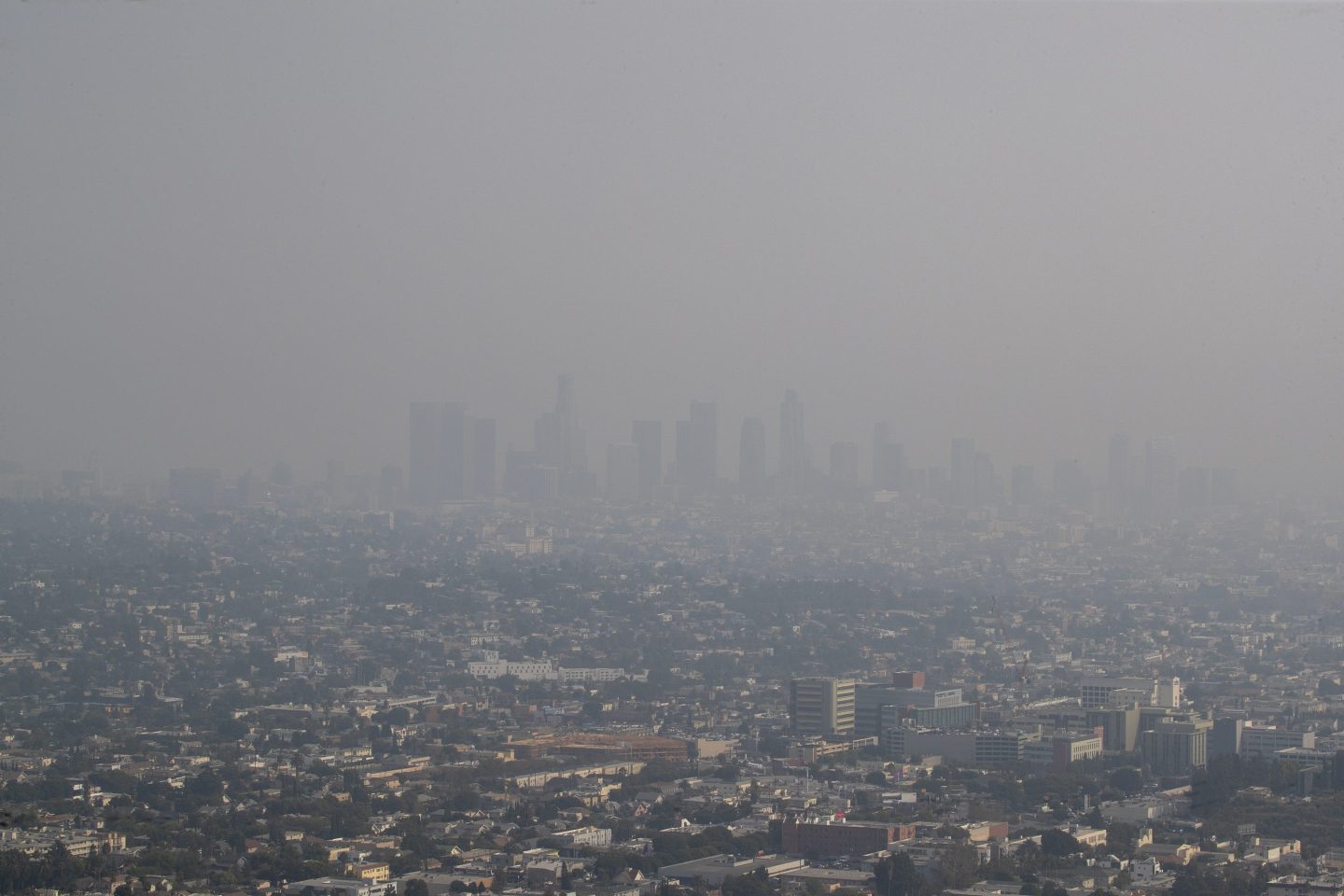Breathing polluted air was linked to an increased risk for dementia, underscoring the potential for stricter air quality measures to prevent conditions like Alzheimer’s disease that afflict millions of Americans.
Chronic exposure to air containing high levels of fine particles was consistently associated with dementia, according to researchers at the Harvard Chan School of Public Health who conducted an analysis of 14 earlier studies. Even when the average annual levels of particles were below a US Environmental Protection Agency standard — 12 micrograms per cubic meter of air — the relationship with dementia persisted.
Some 57 million people worldwide have dementia, and there’s no cure for patients, including those with Alzheimer’s disease, which affects some 6 million people in the US alone. Even a reduction in annual levels of just 2 micrograms per cubic meter should lead to lower dementia rates, said Marc Weisskopf, a professor of environmental epidemiology and physiology at Harvard who helped write the study published Wednesday in the BMJ medical journal.
“As far as we can tell, the lower you can go, the lower your risk is,” he said in an interview. While individuals have little control over their exposure to such pollutants, regulators have more say, he said.
In January, the EPA proposed changing its annual fine particulate matter standards to between 9 to 10 micrograms per cubic meter of air, down from the current 12 micrograms. Other countries, like the UK, have looser standards. For comparison, smoking one cigarette per day is roughly equal to a level of 22 micrograms per cubic meter of air, according to Berkeley Earth scientists.
Fine particulate matter, also known as PM2.5, consists of bits roughly 30% of the diameter of a human hair. Their small size allows them to settle deep in lungs and even make its way into blood, according to the EPA. PM2.5 exposure has been linked to a spate of diseases, including cardiovascular disease, type 2 diabetes and lung cancer, as well as premature death.
The World Health Organization recommends that average annual PM2.5 levels be below 5 micrograms — but nearly the entire global population breathes air that exceeds those limits. The wide scope of pollution exposure makes particulate matter a concerning risk factor for dementia, even though its estimated effect was smaller than for factors like smoking, Weisskopf said.
Nitrogen dioxide and nitrogen oxide, two other pollutants, may also be linked to dementia risk, although the connection was based on fewer studies and may not be as firm, according to the researchers.
“Everybody has to breathe, so everybody is exposed to this,” Weisskopf said. “The population-level effect could actually be quite large because the number of people exposed is massive.”












